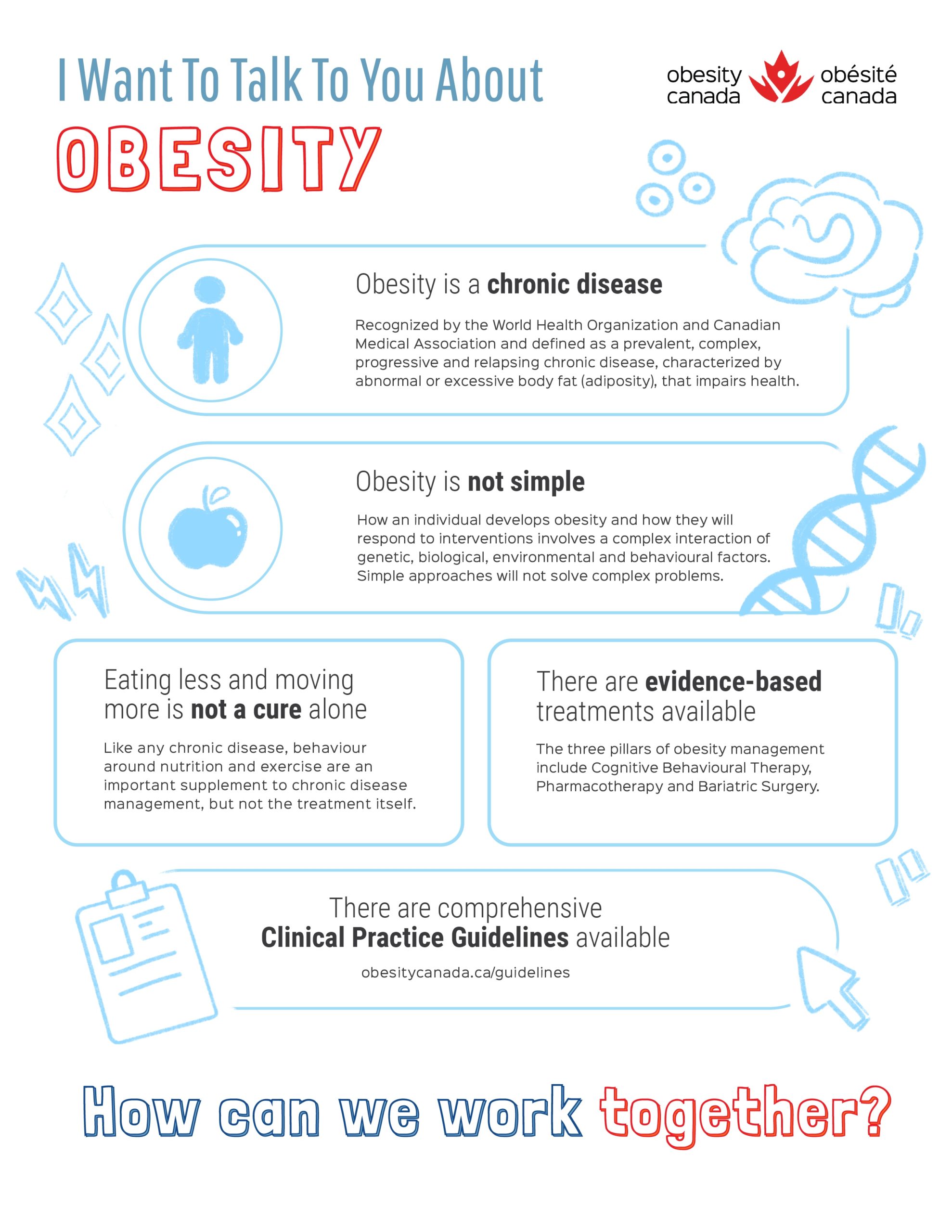Accessing Health Care
I want to talk to you about Obesity
How to access the benefits you need!
Knowing what medications, treatments and other supports are covered by your private insurance – and what you can do if they are not – can help you and your medical team make the best decisions for your health. The following strategies are designed for use by patients with private insurance or extended health benefits.
If a medication, service or other health support prescribed by your healthcare provider is not covered by your insurance plan (either in whole or in part), follow these steps:
1. Consult your benefits handbook, your provider’s or employer’s benefits website, or consult your human resources department to confirm whether it is covered.
2. Check to see if it is covered by your partner’s health insurance, if applicable. There may be opportunities for co-payments. Repeat step 1
If the treatment is not covered, don’t take ‘no’ for an answer from your plan, or your partner’s. Sometimes, exceptions can be made.
a. If a treatment is not covered, ask why. Ask your/your partner’s benefits administrator or human resources department, or call the relevant insurance company directly.
b. If the answer is no because the treatment not on the approved list of medications/services, ask:
- What is the formal exception process?
- Is there a specific form I need to complete to find out if an exception can be made?
- Do I need some supporting documents for this exception to be made?
4. Seek an exception. Work with your healthcare team to establish a case for why you may benefit from this treatment. Ask them to put it in writing, and to include details about why they are prescribing the specific treatment in question (compared with alternatives). Explain to them in writing how your condition affects your quality of life, workplace experience, relationships and other impacts. Meet with them in person to ensure they understand your and your health providers’ point of view. You may need to educate or provide information about obesity to your human resources team.
- Provide this information to your employer and ask that they direct their benefits provider to cover the cost of the treatment.
- Pharmacists may be able to provide support for why you may benefit from a certain treatment.
- Vendors of medical equipment and devices may be able to provide support.
NOTE: Some health care providers will charge a fee to complete or sign the forms.
Form letters to advocate for obesity treatment coverage
Obesity Canada’s Public Engagement Committee developed letters you can send to appropriate decision makers within your private health plan. There is a version for both unionized and non-unionized workers who want to respond to a denial of coverage using an evidenced-based argument for an exception.
Click here to save a template letter for letters to private payers and public formularies

